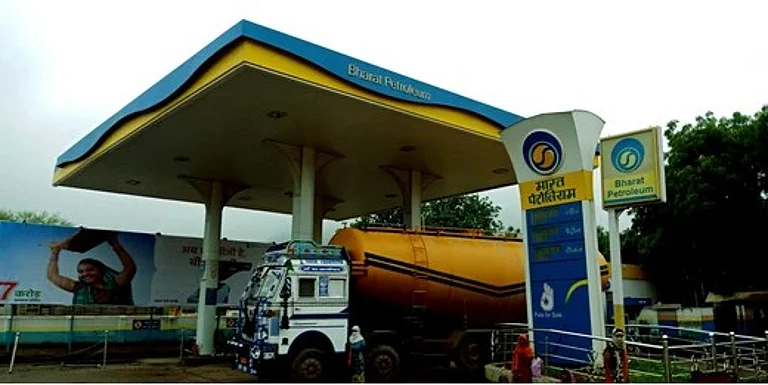A dream home recently became a nightmare trap for some homebuyers in the Delhi-NCR and adjoining regions. Over 1,205 homebuyers, who are now petitioners in the Himanshu Singh and others vs Union of India and others case, found themselves caught in a calculated game where builders and banks appeared to have worked in tandem, leaving the customers either with empty pockets or overburdened with financial stress.
Why Has the SC Called for a CBI Probe in the Supertech Case? Decoding the Builder-Bank 'Unholy Nexus'
Petitioners in the case have alleged that the builders-cum-developers garnered illicit benefits at the cost of homebuyers
In a relief to aggravated homebuyers, the Supreme Court on April 29 ordered the Central Bureau of Investigation to probe multiple cases stemming from 174 special leave petitions filed by 1,205 desperate homebuyers. At the epicentre of this brewing storm stands Supertech—a real estate developer already drowning in debt.
What is the Case About?
The petitioners have alleged that the builders-cum-developers garnered illicit benefits at the cost of homebuyers. While Supertech is the major accused firm, the case involves other builders as well. A majority of the petitioners, nearly 800, hold grievances against Supertech.
According to the order available on the apex court website, homebuyers have accused builders of allegedly trapping them in a subvention scheme for home loans by inking a tripartite agreement between the two parties and banks.
Under the subvention scheme, the buyer pays 5-20% of the money upfront, while the remaining is paid by the bank in the form of a loan which is disbursed to the developer to continue the construction work, and the developer pays the interest on the loan until possession or till such time as mentioned in the agreement. Hence, homebuyers’ equated monthly installment (EMI) begins only after the possession of the property has been taken.
However, in this particular case, the accused real estate developers allegedly defaulted on their installments within four years of launch. As a result, financial institutions redirected their collection efforts toward homebuyers, targeting them with payment demands. These demands were made even before the buyers were given the possession of the property and in some cases, even resulted in coercive actions against the buyers. The projects were launched during 2013-15 and the builders started defaulting from 2018-19, as per information available in the court order.
As many as 19 banks and housing financing companies are said to have been involved in this case, while almost 40 builder-cum-developers were found to be a part of this builder-bank nexus case.
Some of the homebuyers approached the Delhi High Court and after failing to get relief, approached the apex court under Article 136, while others invoked writ jurisdiction, hoping for similar outcomes. Article 136 of the Indian Constitution grants the Supreme Court discretionary power to grant ‘special leave to appeal’.
Case Proceedings in the Supreme Court
The apex court first heard the case in November last year, when it directed the involved parties to submit some required documents. In the first week of March this year, the Supreme Court prima facie found that builders and banks or housing finance companies were in some kind of an ‘unholy nexus’.
The final court of appeal then appointed an advocate, Rajiv Jain, as the amicus curiae, that is, an advocate appointed to assist the court in a case.
The amicus curiae identified the builder-cum-developers, banks and housing finance companies and the amount secured by them through the subvention schemes. Of the total, Supertech had over 21 projects in six cities and it had entered into tripartite agreements with 19 financial institutions.
Preliminary findings
The amicus curiae identified the involved builder-cum-developers, banks and housing finance companies, and the amount secured by them through the subvention schemes. Of the total, Supertech had over 21 projects in six cities and it had entered into the tripartite agreements with 19 different financial institutions. Out of these 19 institutions, eight were prominent names like HDFC Housing Finance, ICICI Bank, Indiabulls Housing Finance, Punjab National Bank Housing Finance, Dewan Housing Finance, India Infoline Housing Finance, L&T Housing Finance, and Aditya Birla Housing Finance, which emerged in most of the said projects of the company.
Supertech had availed loans of Rs 5,157.86 crore since 1998, as per amicus curiae findings and Corporation Bank, IDBI Bank, Punjab and Sind Bank, India Bank, and Punjab National Bank, are some of the other banks that have extended separate loans of large amounts to the real estate developer.
CBI to Investigate
The bench of Justice Surya Kant and Justice Nongmeikapam Kostiswar Singh has now asked the CBI to conduct total seven preliminary examinations and submit an interim report by the next hearing. The Supreme Court’s latest order also talks about the formation of Special Investigation Teams in the CBI. It has also asked various government bodies such as the ministry of housing and urban affairs, Real Estate Regulatory Authority, among others, to appoint nodal officers.
As Corporation Bank had extended a loan of Rs 2,477.54 crores, almost half of all loans, the lender has now been directed to pay the honorarium and all other expenses and payments to the amicus curiae and his staff, the apex court said in its order. “The Corporation Bank shall, in this regard, create a separate corpus and submit a proposal for proportionate sharing of such expenses with other banks.” However, the payments will eventually be borne by the builders-cum-developers, the court’s order said.
Earlier in 2022, the Supreme Court directed Supertech to demolish its 900-flat twin towers in Noida, at its own expense, due to violations of buildings codes.



